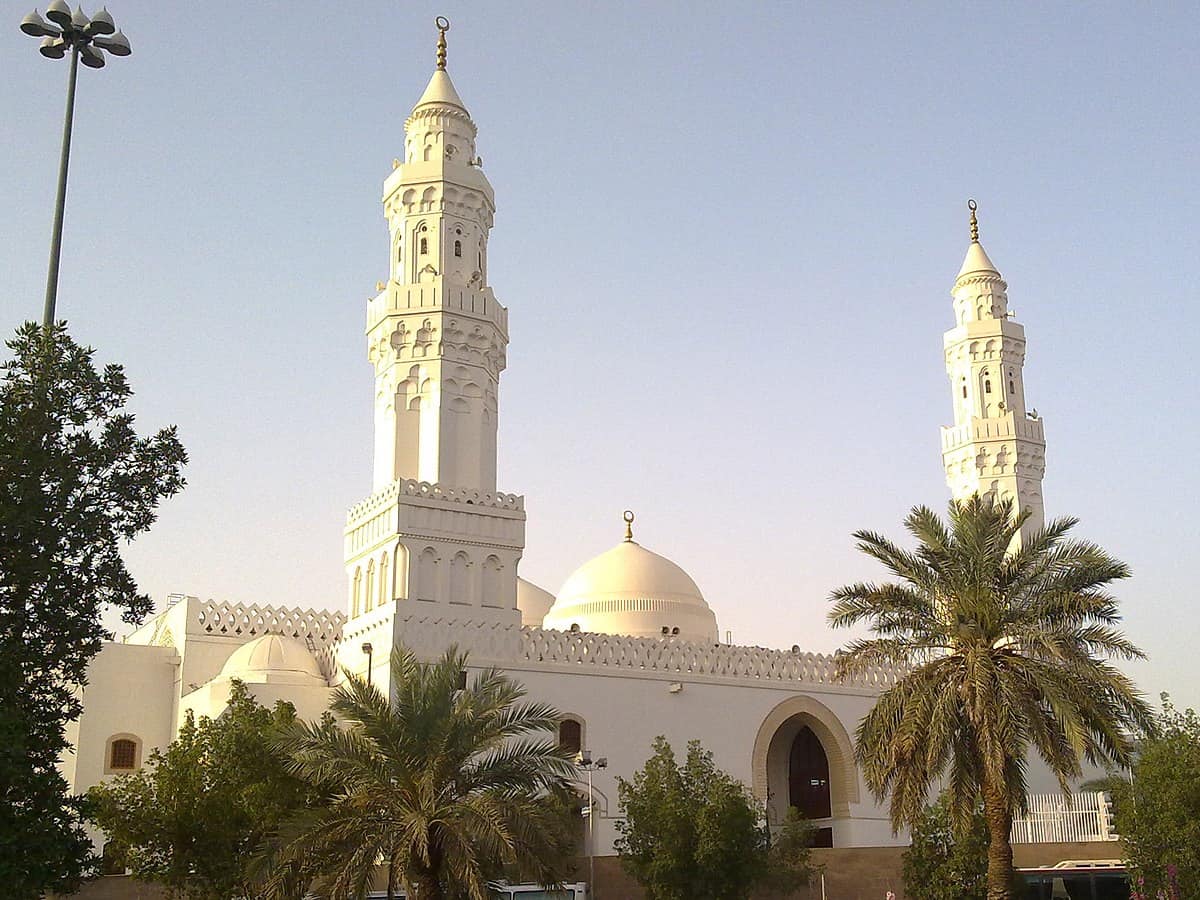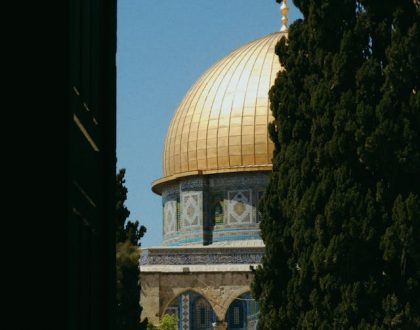A tale of two qiblas -Tarawih reflections 6

Ayahs 142-144 of Surat al-Baqarah, at the start of the second juz, talk about the change in the qibla from Jerusalem to the Kaba.
The original qibla
The angel Jibril came down and taught the Prophet Muhammad ﷺ how to perform salah in the second year after the revelation. This was before the five daily prayers were made obligatory, so he would pray in the morning and evening.
Zaid bin Haritha (may Allah be pleased with him) narrated that the Messenger of Allah (peace be upon him) said:
عن زيد بن حارثة رضي الله تعالى عنه قال: قال رسول الله صلّى الله عليه وسلم: ” أتاني جبريلُ في أوَّلِ ما أُوحِيَ إليَّ ، فعلَّمَنِي الوُضوءَ و الصَّلاةَ” رواه أحمد.
“Jibril came to me at the beginning of the revelation and taught me ablution and prayer [Ahmad]
There is discussion among the scholars, including the Companions themselves, whether he used to pray towards the Kaaba or Jerusalem in the beginning. Ibn Abbas (may Allah be pleased with him) said that he used to pray facing the Kaaba, but from the south so that he would also face Jerusalem at the same time.
After Hijra, the Prophet ﷺ was instructed to face Jerusalem, and there are many authentic narrations that he prayed in that direction for sixteen months.
Al-Bara (may Allah be pleased with him) said:
We prayed along with the Prophet (ﷺ) facing Jerusalem for sixteen or seventeen months. Then Allah ordered him to turn his face towards the Qibla (in Mecca). [Bukhari and Muslim]
Some scholars use this as evidence that he used to pray towards only the Kaaba in Makkah, and switched when he arrived in Madinah, as the narrations would have otherwise included a much longer time period for facing Jerusalem.
Revelation to change direction
Then the revelation came, ‘We have been seeing you turning your face to the heavens. So, We will certainly assign to you a Qibla that you would like.’ [2:144] The Prophet ﷺ hadn’t been complaining exactly, but he loved the Kaaba, the qibla of Ibrahim and Ismail (peace be upon them), and he wanted to pray towards it too. Masjid al-Aqsa in Jerusalem, had disintegrated into ruins at the time. There was only a rock.
So he had been waiting for Jibril to come with instructions to change direction, and eventually he did, in the month of Rajab, two months before the Battle of Badr. The first salah performed in the new direction was Asr.
A companion who was there at the time saw a group praying in a different mosque, and informed them that he prayed Asr with the Prophet (peace be upon him) towards Kaaba. The people in the mosque changed direction in the middle of their salah, and this was the mosque that became the famous Masjid Qiblatayn, the mosque of two qiblas, which you can still visit in Madinah.
The importance of identity
The point of this story has to do with a community’s identity, and the importance of having your own practices instead of following anyone else’s.
Similarly with the adhan: the Prophet ﷺ was longing to have a call to prayer. He consulted with his Companions for suggestions: one suggested blowing a horn as Jewish people did, another suggested lighting a fire at the top of a mountain, another suggested ringing bells as the Christian churches did. Then, Abdullah bin Zaid saw the words of the adhan in a dream. He brought them to the Prophet ﷺ the next day, and he approved them.
The Prophet ﷺ wanted the Ummah to be strong, and this is also why we have our own names. That’s not to say any names are halal or haram, but it’s important to be proud of who you are.
Obeying Allah’s commands
It’s also a matter of obedience. However important the Kaaba is, Allah’s command is more important. Whatever direction He says to face, you face it. There is no value in any other direction if it is not in line with His instructions.
This was training for the Companions to follow Allah’s commands. This is why we are called muslimoon: people who submit and surrender to Allah.
May Allah make us a people with our own identity, and our own connection with Allah with full submission to surrender to His command.
Ramadan Reminder Night 6
Shaykh Haytham Tamim
Transcribed by Hana Khan
Palestine – the Islamic perspective – Utrujj
- The forces of Allah and the fate of the falsifiers
- Climbing the stairs: How to continue your spiritual journey post-Ramadan
- How Allah strengthens the hearts of believers
- Why should you follow up one good action with another one?
- Don’t be a Ramadani person – Be a Rabbani person.
Recommended Posts

The forces of Allah and the fate of the falsifiers
April 26, 2024

How Allah strengthens the hearts of believers
April 19, 2024

